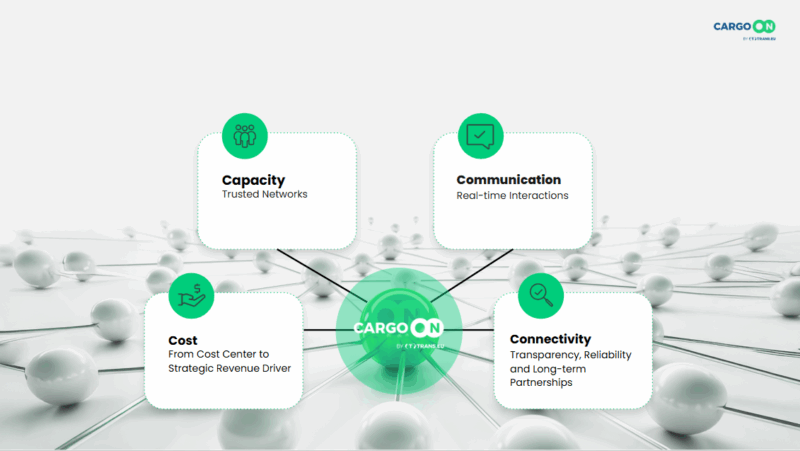The Supply Chain Shift: Blending Contracts, Spot, and Data

The logistics industry is undergoing a fundamental transformation. Once dominated by long-term freight contracts, Europe’s road transport market is increasingly shaped by a volatile mix of driver shortages, rising costs, and shifting customer demands. At the Supply Chain Media Trend Dinner, Michel Stekelenburg, Senior Director Northern Europe, highlighted the new dynamics shaping supply chain management and how businesses can adapt to thrive.
The New Reality in Road Transport
Traditionally, road transport has been a carrier-driven market, where logistics providers held the upper hand. But today’s reality is far more complex. Persistent driver shortages, rising operational costs, and unpredictable demand mean that traditional models no longer guarantee efficiency.
The key to resilience lies in building a connected ecosystem—one that leverages transparency, reliability, and technology to foster long-term partnerships.

The Procurement Shift: Beyond Contracts
Until recently, contracts represented security for shippers and carriers alike. But with as much as 90% of freight once locked into long-term agreements, companies are finding that contracts alone cannot guarantee volume completion.
The result? A growing reliance on the spot market, which offers flexibility in times of disruption. This procurement shift demands smarter, data-driven strategies that blend both models.
Emerging Trends Shaping Logistics
Looking ahead, several trends are set to define the future of procurement and logistics:
- Blended Strategies – A mix of contract and spot market solutions that balance security and flexibility.
- Increased Transparency – Open access to data builds trust across the supply chain.
- Data-Driven Procurement – Decisions guided by insights, not just instincts.
- Partnership Relations – Moving beyond transactions to long-term, trust-based collaboration.
The Future of Logistics: From Cost to Strategic Driver
The role of logistics is shifting from being a cost center to becoming a strategic revenue driver. With real-time communication, trusted capacity networks, and transparent, connected platforms, companies can unlock new efficiencies and growth opportunities.

With over two decades of experience, CargoON (part of Trans.eu Group S.A.) continues to bridge the gap between shippers and carriers, ensuring reliability, transparency, and long-term partnerships in an evolving logistics landscape.